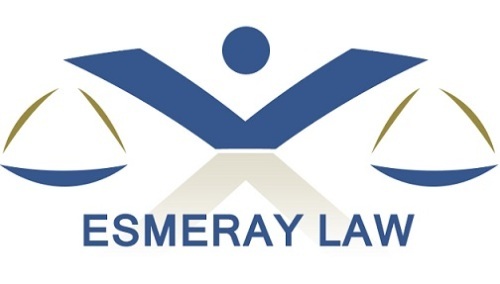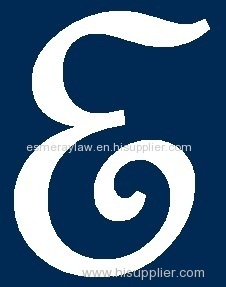
|
Esmeray Law Office
|
Trademark registration in Turkey
| Payment Terms: | T/T |
| Place of Origin: | Turkey |
|
|
|
| Add to My Favorites | |
| HiSupplier Escrow |
Product Detail
representing clients_from both a plaintiff and defendant perspective_in litigation arising out of patent, trademark and copyright infringement, thef
In today's economy, a company is often defined in the global marketplace by its success in procuring, managing and enforcing its intellectual property.
Intellectual property (IP) which is defined as products of mind, such as inventions; literary and artistic works; designs; and symbols, names and images used in commerce is protected in law by, for example, patents, copyright and trademarks, which enable people to earn recognition or financial benefit from what they invent or create. By striking the right balance between the interests of innovators and the wider public interest, the IP system aims to foster an environment in which creativity and innovation can flourish.
Intellectual property law deals with the rules for securing and enforcing legal rights to inventions, designs, and artistic works. The purpose of intellectual property laws is to encourage new technologies, artistic expressions and inventions while promoting economic growth. When individuals know that their creative work will be protected and that they can benefit from their labor without fear of misappropriation by others, they are more likely to continue to develop creative works that benefit society.
According to the Facts and Figures report of World Intellectual Property Organization ("WIPO") the estimated 2.35 million patent applications filed worldwide in 2012 represents growth of 9.2% on 2011. Utility model applications grew by 23.4% on the previous year's figures, totaling 827,500. The number of classes specified in trademark applications grew by 6%, reaching 6.58 million. Lastly, the 1.22 million industrial designs contained in applications grew by 17%. Growth in filing activity for these four types of IP can be largely attributed to the increasing numbers of applications filed with the IP office of China which overtook the United States Patent and Trademark Office to become the largest in the world.
Turkey has taken concrete actions to enhance its IP regime by enacting better legislation; increasing the number of raids, arrests and prosecutions for IP crime; establishing specialized IP courts; increasing public awareness; and participating in initiatives for international cooperation. Turkish IP law allows both civil and criminal actions. In general, civil actions include requests for determination of infringement, cessation of acts of infringement, seizure of counterfeit goods, and compensation of damages. Criminal actions include imprisonment, pecuniary punishment, closure of job sites, and prohibition from commerce.
Turkey has specialized IP courts, presided over by judges who have had training in intellectual property law, in Istanbul, Ankara, and Izmir. If the alleged offense does not occur in Istanbul, Ankara or Izmir, the case begins in civil courts that act as IP courts.
Listed under selected middle- and low-income countries in WIPO's Facts and Figures Report 2013, Turkey is reported to have double-digit growth by receiving 13.4% more patent applications in 2012 than in 2011. The Report shows 15.5% annual increase in the numbers of utility model applications received by Turkish IP Office in 2012 compared to 2011. According to the Report, among the top 10 IP offices, Turkey with the 24.1% increase reported the highest annual growth in trademark filling activity. Turkish IP Office saw increases in design filing activity —based on application design counts— in 2012 with 12.4% showing double-digit growth.
Total 4,666 Patents, 3,788 Utility Models, 229,500 Trademark -class count- and 46,330 Industrial design application activities were received by Turkish IP Office in 2012.
Our IP services include;
• representing clients—from both a plaintiff and defendant perspective—in litigation arising out of patent, trademark and copyright infringement, theft of trade secrets, unfair trade practices, enforcement of non-disclosure and non-competition agreements, and other intellectual property matters.
• technology licensing;
• copyrights, trade secret and unfair competition counseling;
• conducting intellectual property searches and audits, both for internal use and in connection with the acquisition or disposition of businesses; and
• advising clients regarding the protection of intellectual property through international and national registration, internet-related disputes and gray market and anti-counterfeiting claims,
• negotiating and drafting license, joint venture/strategic partner, technology transfer, manufacturing, distribution, development and employment-related agreements, including non-disclosure and non-competition agreements.



